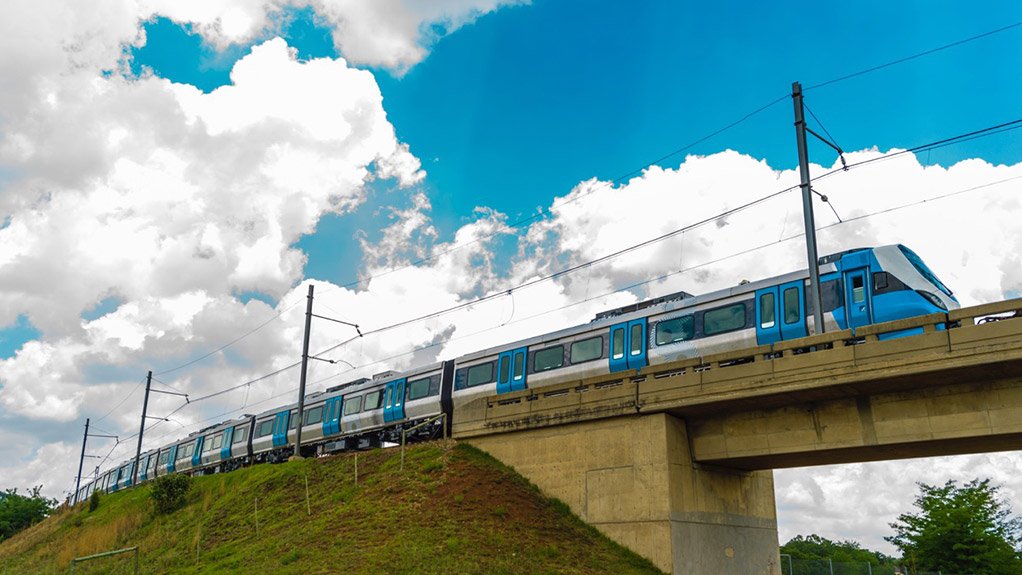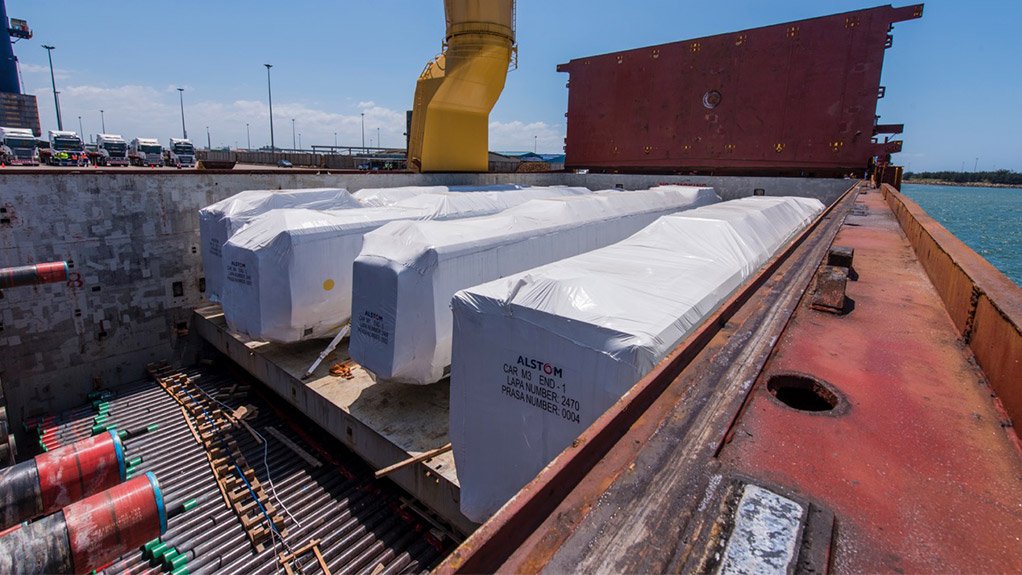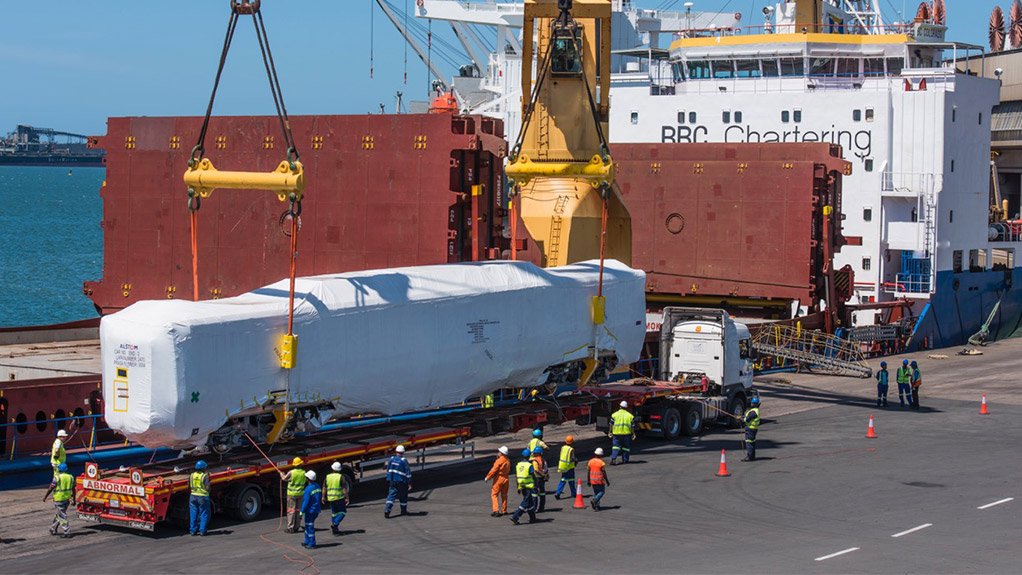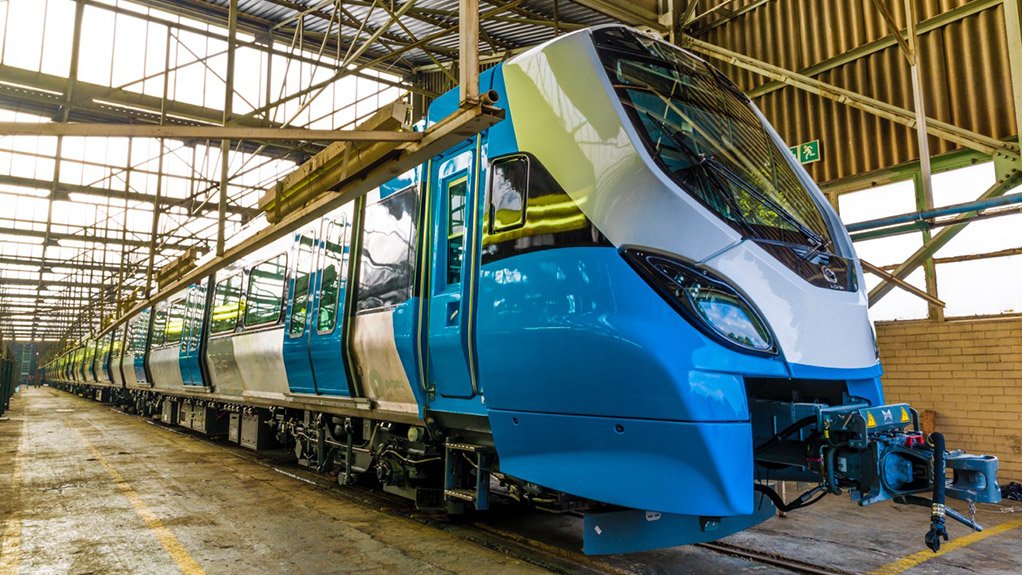Gibela CEO Marc Granger is positive the R51-billion deal that will see the Alstom-led consortium supply 600 new trains, up to 2027, to the Passenger Rail Agency of South Africa (PRASA), will move ahead swiftly this year.
Up to the end of last year, Gibela awaited the handover of the Dunnottar site, which would house the consortium’s plant, as well the test track and depot required for its new rolling stock.
With the environmental go-ahead now in hand, Gibela has the green light to start construction on the East Rand site.
The first 20 trains in the contract will come from Alstom’s factory in Brazil, with the remaining 580 to be produced at Dunnottar.
While the East Rand facilities are being built, Gibela will make use of a test track at PRASA’s Wolmerton site to evaluate the first few trains arriving from Brazil.
The first train – a test train – arrived in South Africa in December last year.
The Wolmerton development is being released to Gibela in a phased approach, says PRASA strategic asset development executive Piet Sebola.
Work on the first package includes upgrading line four at the site, in order to accommodate the first two test trains.
“The test track is far advanced and will be completed in two weeks,” adds Sebola.
PRASA is currently working on delivering a new workshop – with lines five, six and seven – to Gibela. Work on this package should be completed by the end of March.
Gibela will move from line four to these new lines once this work package has been completed.
When Gibela moves to Dunnottar once the factory is completed, lines four, five, six and seven will be used for PRASA’s maintenance work on the new train sets, says Sebola.
Four Challenges
Granger believes Gibela and the PRASA project will face four challenges this year.
Following what will be extensive testing, the Railway Safety Regulator (RSR) is expected to give the green light on the project’s rolling stock by October, certifying that the train indeed operates according to its design.
The second test train should arrive from Brazil later this month.
Already, more than ten trains are on the manufacturing line at the Brazil plant.
The first and second trains will act as test trains. The third train will hopefully start revenue service at PRASA’s Metrorail operations in October, if everything goes according to plan.
Granger says each train will be tested to some degree before entering service. The RSR, however, issues its certificate based on the performance of the first two test trains.
The test trains will have to operate not only on the Wolmerton test track, but also on the mainline, where they have to reach speeds of 132 km/h – 10% more than its proposed maximum operating speed of 120 km/h.
The second challenge 2016 will bring, is the start of construction on the Dunnottar site, which is expected to last 18 months.
The site will require quite extensive earthworks, as it slopes significantly, notes Granger.
Construction of the first building – the training centre – should start in May.
The site will house offices, the factory, a test track and a training centre as one construction project, with a supplier park as a second project.
Granger aims for both projects to be built simultaneously.
“Another key challenge for us this year is to grow our skills base,” adds Granger.
Gibela currently has 200 employees, with this number expected to grow to 500 in 2017, and 1 500 in 2018.
Gibela would probably end up with a payroll of 2 000 employees.
“We need to mobilise a massive training programme ahead of the first train being built in South Africa,” notes Granger.
The first South African-made train is to be manufactured at the Dunnottar plant towards the end of 2017.
A fourth challenge for 2016 is that Gibela requires local part suppliers, able to deliver their first parts by the beginning of next year.
In an effort to give some local suppliers a head start, 20% of the parts on the Brazilian trains, by value, already come from South African suppliers.
“We used this early phase of the project as a test bench to assess the capacity of the South African rail industry,” says Granger.
At project peak, Gibela aims for 72% local content on the PRASA rolling stock.
“We can achieve this goal, but it will not happen overnight, as we need to build and develop a robust supplier base,” says Granger.
EMAIL THIS ARTICLE SAVE THIS ARTICLE
To subscribe email subscriptions@creamermedia.co.za or click here
To advertise email advertising@creamermedia.co.za or click here

















